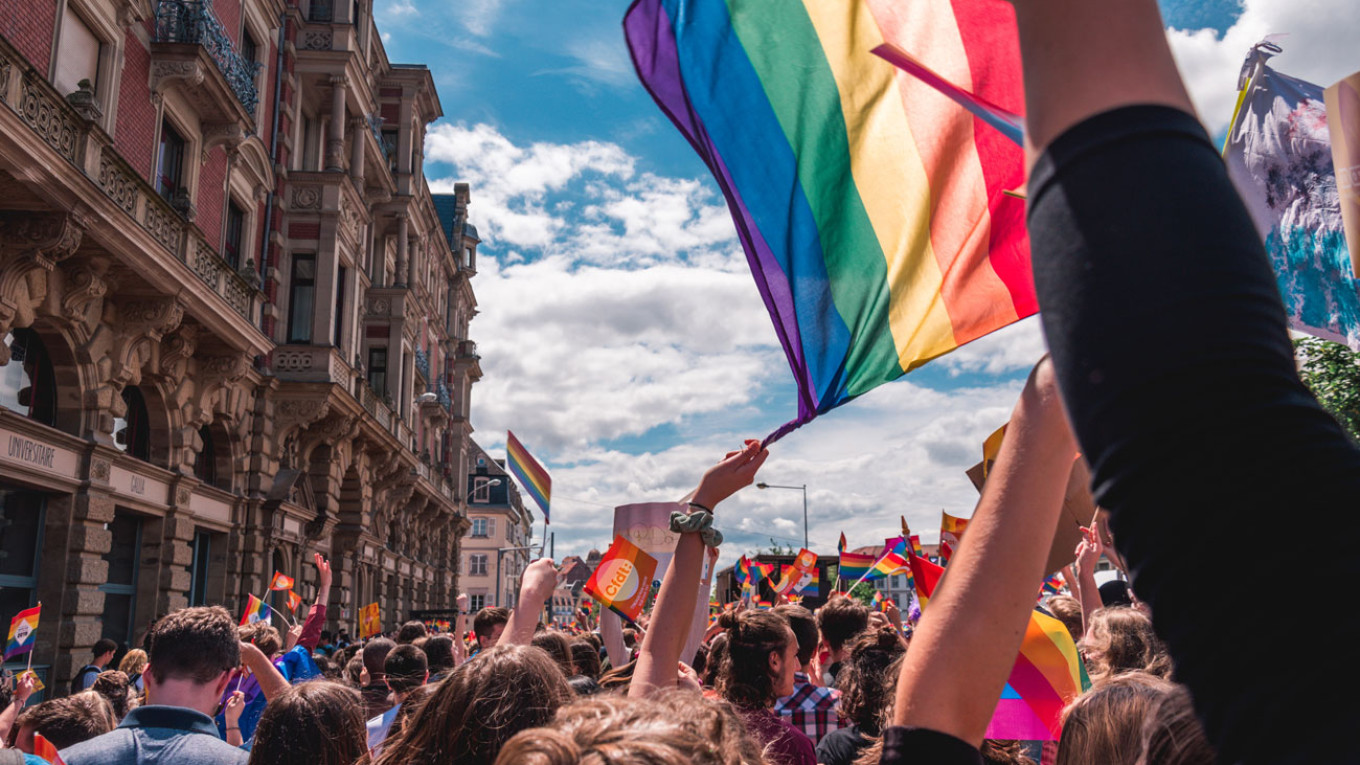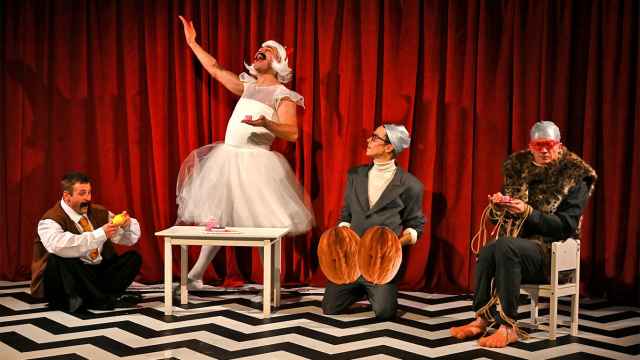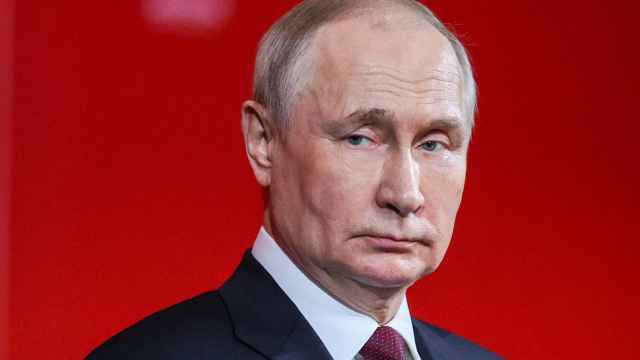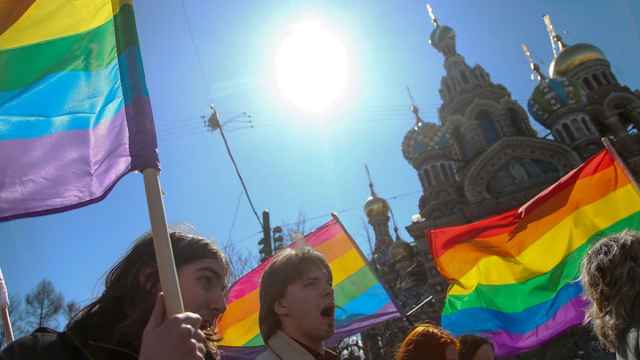Russia’s Justice Ministry said Friday it has filed a motion for the Supreme Court to ban what it called an “international LGBT public movement” as extremist, a move activists warned would effectively put all LGBT Russians at risk of criminal prosecution.
The LGBT “movement’s” activities within Russia were found to “incite social and religious discord” in violation of the country’s anti-extremism laws, the ministry said in a statement.
It was not immediately clear how Russian authorities are expected to prove the existence of an organized global LGBT movement.
Russia’s Supreme Court is scheduled to rule on the Justice Ministry’s petition on Nov. 30.
Individuals found guilty of involvement in an “extremist” group face lengthy prison terms.
“LGBT people are a highly vulnerable group facing numerous social challenges. Over the past few years, LGBT organizations have endeavored to address these issues within an extremely hostile environment. Activists face pressure from the state, as well as from homophobic and transphobic groups, often enduring physical attacks,” one of the few prominent LGBT activists still inside Russia told The Moscow Times, speaking on condition of anonymity due to fearing for his life in the country.
“This ban would deprive LGBT organizations of the opportunity to operate and would subject their activists and employees to the risk of criminal prosecution,” the activist said. “Essentially, it would entail criminal prosecution based solely on one’s orientation or identity.”
If granted, the ruling would equate the so-called “LGBT movement” to groups like those of jailed Kremlin critic Alexei Navalny, whose members have fled abroad to escape prosecution.
Homosexuality was a crime in Russia until 1993, and it was regarded as a mental illness until 1999.
LGBT rights have come under pressure over the past decade as officials railed against what they called the antithesis of Russian “traditional values.”
Last year, President Vladimir Putin expanded the 2013 ban on “gay propaganda” toward minors to outlaw public displays of non-traditional relationships and lifestyles to people of any age.
On Monday, a representative of the Justice Ministry defended its human rights record at the UN, saying LGBT people’s rights were protected by law and the legal system only targets the “propaganda of non-traditional sexual relations” that threaten traditional values.
Putin indirectly addressed the issue later Friday, saying at a cultural forum in St. Petersburg that “LGBT people are part of society and have the right to win cultural contests.”
A Message from The Moscow Times:
Dear readers,
We are facing unprecedented challenges. Russia's Prosecutor General's Office has designated The Moscow Times as an "undesirable" organization, criminalizing our work and putting our staff at risk of prosecution. This follows our earlier unjust labeling as a "foreign agent."
These actions are direct attempts to silence independent journalism in Russia. The authorities claim our work "discredits the decisions of the Russian leadership." We see things differently: we strive to provide accurate, unbiased reporting on Russia.
We, the journalists of The Moscow Times, refuse to be silenced. But to continue our work, we need your help.
Your support, no matter how small, makes a world of difference. If you can, please support us monthly starting from just $2. It's quick to set up, and every contribution makes a significant impact.
By supporting The Moscow Times, you're defending open, independent journalism in the face of repression. Thank you for standing with us.
Remind me later.






